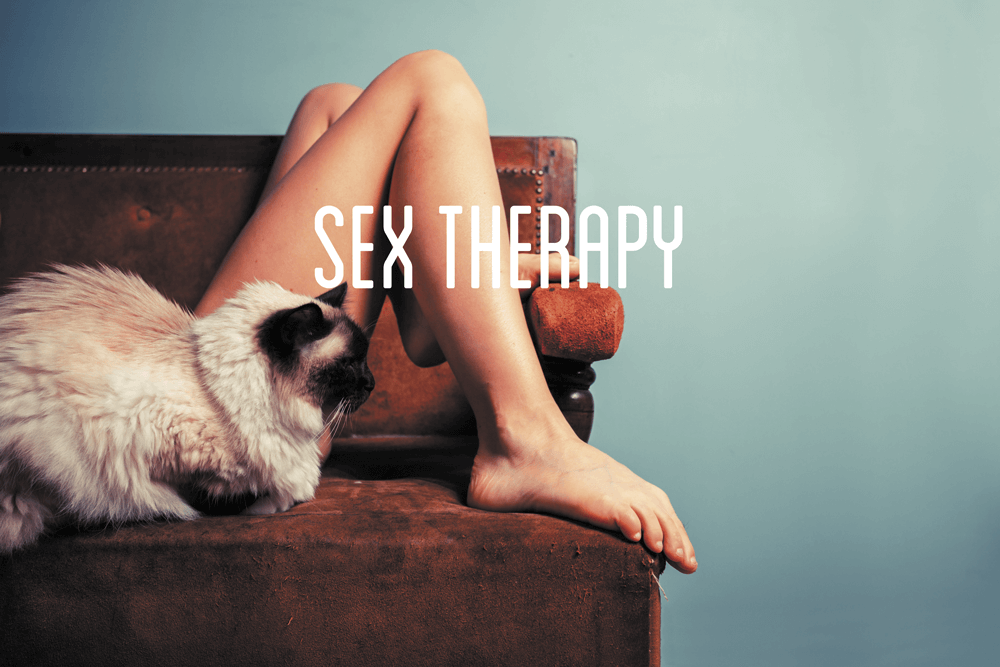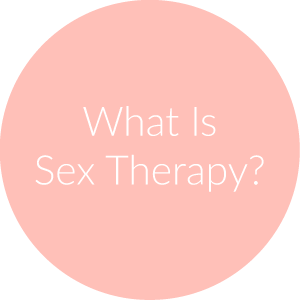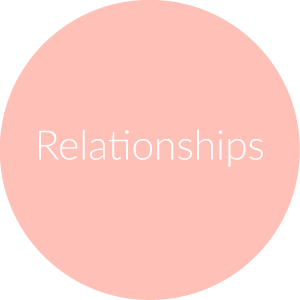
What is Sex Therapy
Sex therapy can be helpful for an individual or couple who feel their issues are affecting their quality of life, or just want to learn more about their sexuality. It can improve relationships and the erotic life in the broadest sense. We don’t just want you to solve your specific problem, we want you to grow sexually, unlearn bad patterns, rethink unhelpful misconceptions about sex and relationships, dismiss common myths and relearn a healthier model of sexuality. We want you to face sex with more self-confidence, less fear, and a greater sense of self-esteem.
Sexual therapy is very satisfying and clients can notice positive changes within just a few sessions. Consultations do not involve any physical examinations, or any sexual acts, but it does require you to openly talk about sexual feelings and concerns. It also requires a level of self-awareness. We’ll talk, we’ll try to figure out together what is the root cause of any difficulties, and we’ll give you some homework between sessions. You will have to work with your mind and body, both as an individual and/or as a couple.
“Sex is one of the few things in our culture that we are not allowed to watch in order to learn from, and because our culture’s history is so rooted in sex-negativism, just talking about sex for most people feels like going to the dentist! Instead of speaking up and asking questions, most people turn to pornography to learn how to be better lovers, which is like trying to learn to drive from watching The Fast and The Furious. Bad idea!”
– Reid Mihalko

call now
Sex therapy can help with many different issues, lack of sexual desire both male and female, painful intercourse, difficulties with orgasm, arousal disorders, erectile problems, involuntary (premature or delayed) ejaculation, sexual difficulties following abuse, fear of sex, sex avoidance, general lack of sex confidence, and so on. We can also work on poor body image relating to intimacy, jealousy, sexual orientation or identity struggles and alternative sexualities (see the list below).
Sex involves the body, the mind and the emotions, you’ll learn to understand how it all works together. Sex therapy is a meaningful process of unlearning and relearning. And is not a passive experience, you will be invited to participate by thinking, doing and feeling.
All of the work you do in the therapy room is based on talking, however, you are also given some practical activities/ homework to do at home.
I strongly believe there’s no ‘right and wrong’ when it comes to sexuality. No matter how you identify, what you’re into, your relationship status or how you approach sex and intimacy. You’ll be able to talk about yourself in a safe and confidential environment, free of shame and judgement.
“The most abundant aetiology of sexual problems, rather than medical or psychopathological origin, comes from lack of education and ignorance of sexual function”
– Master and Johnson, Human sexual response,1966
EN. Sexology truly specialises in sex therapy. There are many counsellors and therapist out there who claim to work sex problems, but they are not specialised. It’s very important that you take the time to research the qualifications of the professional. If the background of your chosen practitioner is psychology or medicine that doesn’t mean that they have studied sexuality. Sexological study is what distinguishes sex therapists from other medical and mental health practitioners.
Our therapist is a psychologist specialised in sex therapy and her work is currently focussed in sexuality and relationships. If you are struggling in your sex life you should see a sex therapist, in the same way that if you are having problems with your heart you should see a cardiologist.
Our areas of work within sex therapy
• Loss of desire
• Dealing with differences in libido
• Painful intercourse
• Difficulties with orgasm
• Involuntary ejaculation
• Erectile problems
• Arousal difficulties
• Fear of sex or sex avoidance
• Lack of know-how
• Sexual difficulties following abuse
• Learning about your lovers’ body
• Body image, self esteem and sex confidence
• Sex orientation or gender identity struggles / coming out
• Coping with a break up
• Sex information and orientation
• Wanting to know more about sex in general
• Wanting to explore alternatives to conventional intercourse
• Reinvigorating a long-term relationship
• Improving communication
• Dealing with changes in ageing
• Exploring Alternative sexualities(Open relationships – Polyamory -Kink )
• Erotic growth
And much more.
“One of the biggest myths that we have about sex is that is natural. Sex is not natural, we have to learn how to do it”
– Cyndi Darnell




